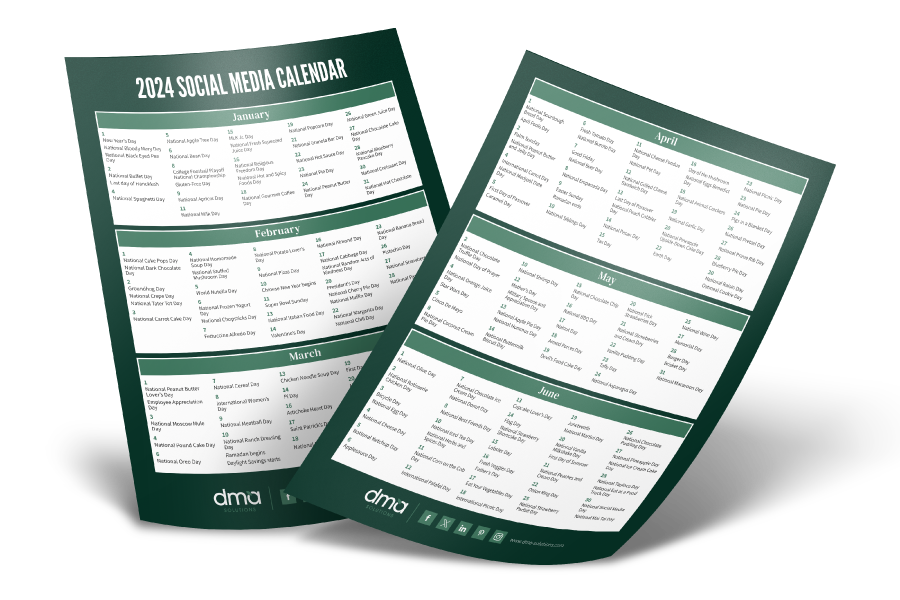If you’ve been around DMA long enough, you know we love cultural resources like the Enneagram, Working Genius, Ideal Team Player, etc. Well, to capitalize on all the love in the air before Valentine’s Day, we’re sharing one of our new favorite ways to improve relationships and culture in the workplace.
You may be familiar with Dr. Gary Chapman’s book/assessment, “The Five Love Languages” but did you know he has a follow-up book specifically designed for the workplace called, “The 5 Languages of Appreciation In The Workplace?” Today, we’ll give you a high-level view of what you can expect when you dive into this book and how it will impact your company’s culture. After all, don’t we want to be an industry that cares not only about the food we grow, but the people within our organizations? We believe this book will get you off on the right foot. Let’s dive in…
5 Languages Of Appreciation In The Workplace
Basically, this assessment describes the five different ways people feel appreciated at work. If you don’t think that’s important, Apollo Technical found that 63 percent of employees are more likely to stay at a job where they feel appreciated. So, whether you’re the leader of an organization or just a part of the team, understanding where you and your teammates land on this assessment will be vital to creating a positive environment where people want to stay and do the work that we know matters so much in our industry.
The different types of appreciation Dr. Gary Chapman describes are:
Words Of Affirmation
If you receive appreciation through “words of affirmation,” audible compliments help you feel appreciated at work. But, specific affirmations – not just a “good job” here and there… that would come across as shallow or insincere to you. So, if you are leading a “words of affirmation-er,” specifically calling out aspects of their work or character will go a long way in making sure they feel appreciated.
Quality Time
While slightly self-explanatory, those who receive appreciation through “quality time” need quality time spent with their employees or leaders to feel appreciated at work. If you lead someone who feels appreciated in this way, set aside some extra time to show your undivided attention to this employee – this can be done by going to grab a cup of coffee together or simply just extending your one-on-one meetings to hear more about their life.
Acts of Service
If you receive appreciation through “acts of service,” it means the world to you when people don’t just talk about helping you but actually step in to take something off your plate. The phrase “talk is cheap” is the motto for someone who feels appreciated by the actual service of others.
Tangible Gifts
If you’re familiar with the “5 Love Languages” term for “tangible gifts,” this won’t be unfamiliar to you. Basically, if you receive appreciation through tangible gifts – it doesn’t mean you need lavish gifts every week to feel appreciated. The cost doesn’t matter, it’s the thought behind it… the thought that someone was thinking about you and took it a step further by purchasing a tangible gift to show it. If you want to show appreciation in this way, think about picking up an extra drink at Starbucks while you’re getting your own or purchasing a snack you know they like to put on their desk before they arrive.
Physical Touch
I know, I know… you were waiting for this one. But, of course, “physical touch” is defined differently for the workplace than it is in the “5 Love Languages” book. I imagine that people who feel appreciated through physical touch in the workplace make up a smaller percentage, but it’s still important to understand and show appreciation to those who feel valued in this way. Think small – a simple high five, fist bump, or handshake will mean a lot for someone who feels appreciated through physical touch.
Now that you’ve read a brief description of each appreciation type, you may be thinking “great… good info… but now what?” Think of it this way – if you genuinely care and desire to show appreciation to your team but are only showing it in the way that you receive it… your team will never truly feel appreciated. For example, my primary language of appreciation is “words of affirmation.” If my boss is continuously putting small gifts on my desk, I’ll certainly think it’s a nice gesture but I still won’t feel like my work is being appreciated. It’s important to not only know your own language but also others around you so you aren’t spinning your wheels (or money) on something that will yield a negative ROI (see, I brought it back to marketing somehow)! We believe the understanding of this resource can bring about positive change to your company’s culture.
If any of this resonated with you, we highly recommend you purchase the book to dive into the full resource and put this to use in your company. Additionally, if you’re looking for more information on this subject, Dan’l and Megan actually did an entire episode on this book during their podcast, Self Smarter! Make sure to give that episode a listen and contact us to talk through this more – we love talking about the various resources to improve company culture!












